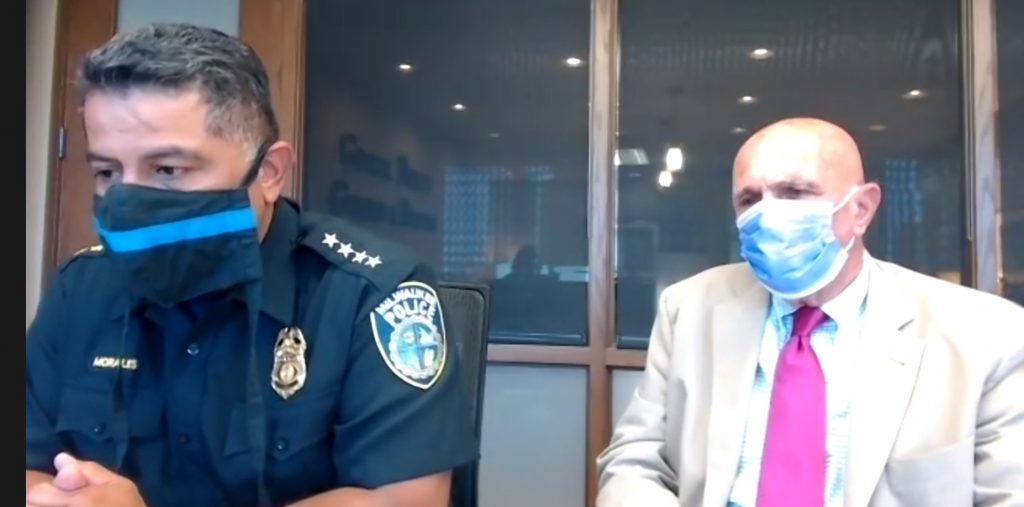City Admits Violating Morales’ Due Process
But City Attorney argues Morales must go back before Fire & Police Commission for a trial.
The City Attorney’s office concedes that former Milwaukee Police Chief Alfonso Morales rights to due process were violated when he was demoted, but it also wants the case to return back to the Board of Fire and Police Commissioners.
City Attorney Tearman Spencer filed a brief in Circuit Court Monday arguing the court should remand the issue of Morales’ demotion in August back to the board because Morales did not actually receive the due process entitled to him under law.
A couple weeks later Morales filed a claim for $625,000 against the city and requested the Circuit Court review his demotion.
The City Attorney’s brief said that under state law Morales is owed a trial by the board before they can demote him, and that no record of such a trial exists, therefore the court should remand the matter back to the board so that Morales can receive the due process he is entitled to. However, while the the city attorney does admit Morales’ due process was violated, the office also argues that state statute prohibits the court from reviewing certain evidence he submitted in his petition.
Gimbel told Urban Milwaukee in an email they “are opposed” to sending the matter back to the board. “The FPC has been spoiled by an expressed bias to participate in a hearing,” he said.
It’s under state statute 62.50 that Morales is arguing his due process was violated. But the city attorney’s office is arguing this same statute requires the court to only consider “evidence contained in the record certified and returned to the circuit court by the board.” And to strictly answer the question of whether the evidence — contained in the record — supports the decision to demote Morales.
The City Attorney is arguing that the court can only review the evidence and information that is part of the certified record of the trial the board held in order to demote Morales. But no trial was held, as the city conceded. Therefore “it becomes necessary to remand this matter to the Board to ensure Morales receives a full hearing.”
“Not only would remanding this matter to the board serve to rectify Morales denial of due process rights,” the city attorney’s office writes, “it will permit the parties to more fully develop the factual record which could then be returned to the Court pursuant to section.”
“Morales’ attempt to supplement the record before this Court is improper and must be rejected,” the city attorney writes.
In Morales’ petition, he also argues that the court should order the recusal of all the members of the Board of Fire and Police Commissioners. The city attorney argues that under state statute the court cannot “contemplate the recusal of board members” because it is not included in the single, narrowly tailored question the court must consider under the law: does the evidence support Morales’ demotion?
So if the court agrees with the city attorney, Morales will go back before the board for a hearing considering his demotion before the court considers whether he was wrongfully demoted or not.
























